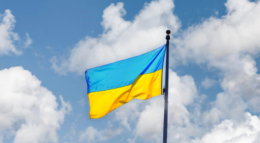
EU integration for the Western Balkans is vital
In her 2023 State of the Union Address President of the European Commission von der Leyen affirmed that the future of the Western Balkans lies in the EU. In doing so, she was reiterating an EU promise made at the historic Thessaloniki Summit twenty years ago. At that time, the devastating Yugoslav Wars had just ended. International borders had changed with the independence of Montenegro and later Kosovo. And a wave of EU enlargement was about to take place, with ten Central and Eastern European countries joining in 2004, Bulgaria and Romania in 2007 and Croatia in 2013. The driving force behind this process was a powerful vision to reunite the European continent. But also a strong political will in Central, Eastern and South-Eastern European countries to become members of the European family. For similar reasons, the Western Balkans countries were just as motivated to join the EU.
However, twenty years on, the Western Balkans have still not joined the European Union. Sometimes it even seems that EU membership has become less attractive for the region than it was two decades ago. With the world and the EU facing a number of crises in the past two decades, the Union's appetite for enlargement has diminished. At the same time, some Western Balkan countries showed limited political will to implement much needed EU reforms, giving the enlargement sceptics in the Union arguments against their integration. Overall, the enlargement process has proceeded at a slower pace and with less visible and tangible results than expected, leading to disappointment and alienation from the EU. The Union and the Western Balkans – intentionally or unintentionally – found an unsatisfactory modus vivendi.
Since the Russian war of aggression against Ukraine, EU membership has become an even more attractive goal for the Eastern partnership countries - Ukraine, Moldova and Georgia. At the same time, countries of the Western Balkans are facing unprecedented challenges to their stability as well as amplified foreign policy dilemmas. Yet there is also increased awareness of a new window of opportunity for enlargement, raising expectations vis-à-vis the EU.

We welcome that the EU is now approaching enlargement from a more geostrategic and less bureaucratic perspective than before. Last year's decision to grant Bosnia and Herzegovina candidate status was grounded in strategic considerations. There is an increasing recognition that enlargement policy is the EU’s most powerful stabilisation instrument. That said, a new, strategic EU approach will not lower enlargement standards. Full reform implementation remains essential.
The current situation is an opportunity for both the European Union and the Western Balkans to show more strategic foresight, to fully regain their enlargement credibility and to reinforce mutual trust, some of which had been lost over the years.
In fact, a few concrete steps should be taken without any further delay.
First, the European Union must open the EU accession negotiations with Bosnia and Herzegovina by the end of this year. Second, Montenegro must continue on its EU reform path, which depends on the formation of a new government in the country. Third, the negotiations with Albania and North Macedonia should advance. In North Macedonia, next steps depend on the country's ability to pass the required constitutional changes. The latter case is a reminder that EU member states and Western Balkan countries need to play a responsible role and refrain from inserting bilateral problems and disputes, which are unrelated with the accession process.
On the EU side, the discussion on required institutional and financial preparations to integrate new members is gaining momentum. This, however, should not become a pretext to delay the enlargement process for our Western Balkans partners. We need to start implementing existing proposals to accelerate the enlargement process now.

EU institutions should be more imaginative in adapting the enlargement process to today's needs. The process should be less complex and more results-oriented.
We must make it more tangible for citizens and tie reform progress to concrete benefits. We also need to engage more dynamically with the Western Balkans countries so that they can really feel the heartbeat of Brussels. Since June 2022, there is a clear tasking by the European Council to advance gradual integration already during the enlargement process. In June 2023, as the “Friends of the Western Balkans” together with our colleagues from Czechia, Greece, Italy and Slovakia, we called on the EU institutions to present a clear agenda for gradual and accelerated integration with concrete implementation steps until 2024 and beyond. This should be based on fair and rigorous conditionality and the principle of own merits. We see many possibilities, from inviting our Western Balkans colleagues more often to the Foreign Affairs Council to opening up additional policy areas such as education, science, transport or trade for their gradual involvement.
The true value of EU enlargement lies in its transformative ability: helping countries to raise living standards for their citizens and creating prosperous environments where young people may fulfil their dreams. Our Western Balkans and Eastern partners deserve this opportunity, and EU citizens will benefit from more stability and prosperity beyond the current EU borders. EU enlargement is not one among many political options; it is the geostrategic imperative of the day.
This piece was written by Tanja Fajon, Minister of Foreign and European Affairs of Slovenia, Alexander Schallenberg, Minister of European and International Affairs of Austria and Gordan Radman Grlić, Minister of Foreign and European Affairs of Croatia.

Alexander Schallenberg is the Federal Minister for European and International Affairs of the Republic of Austria.














